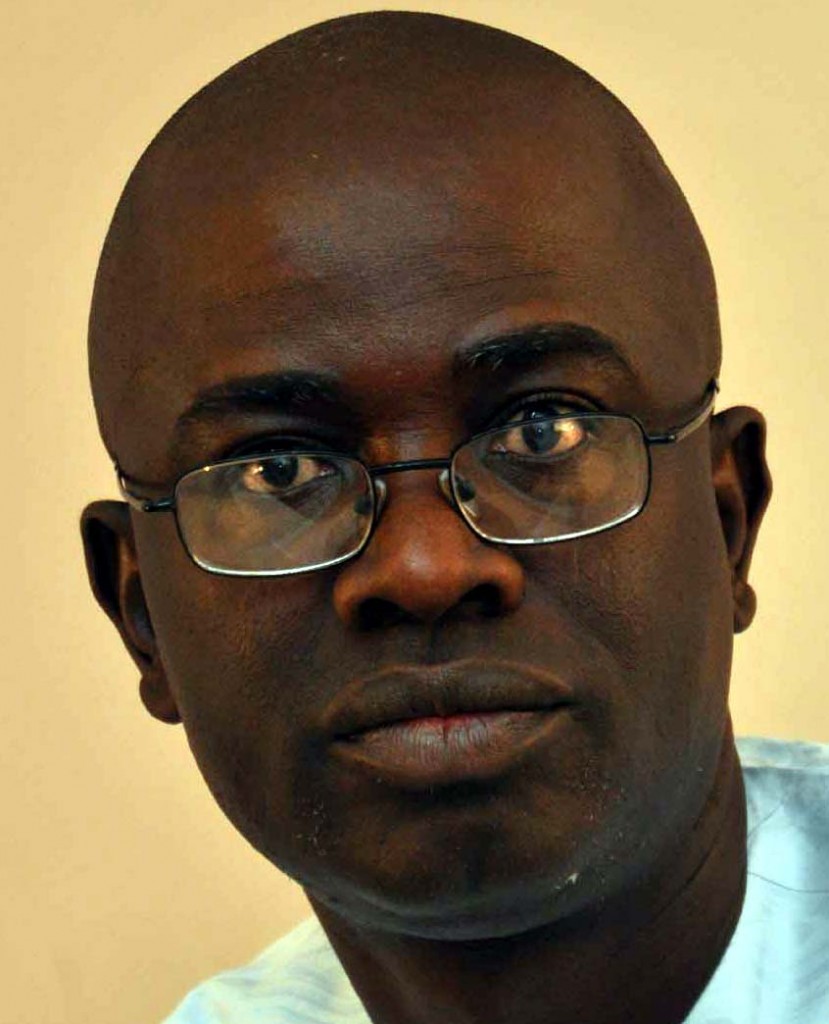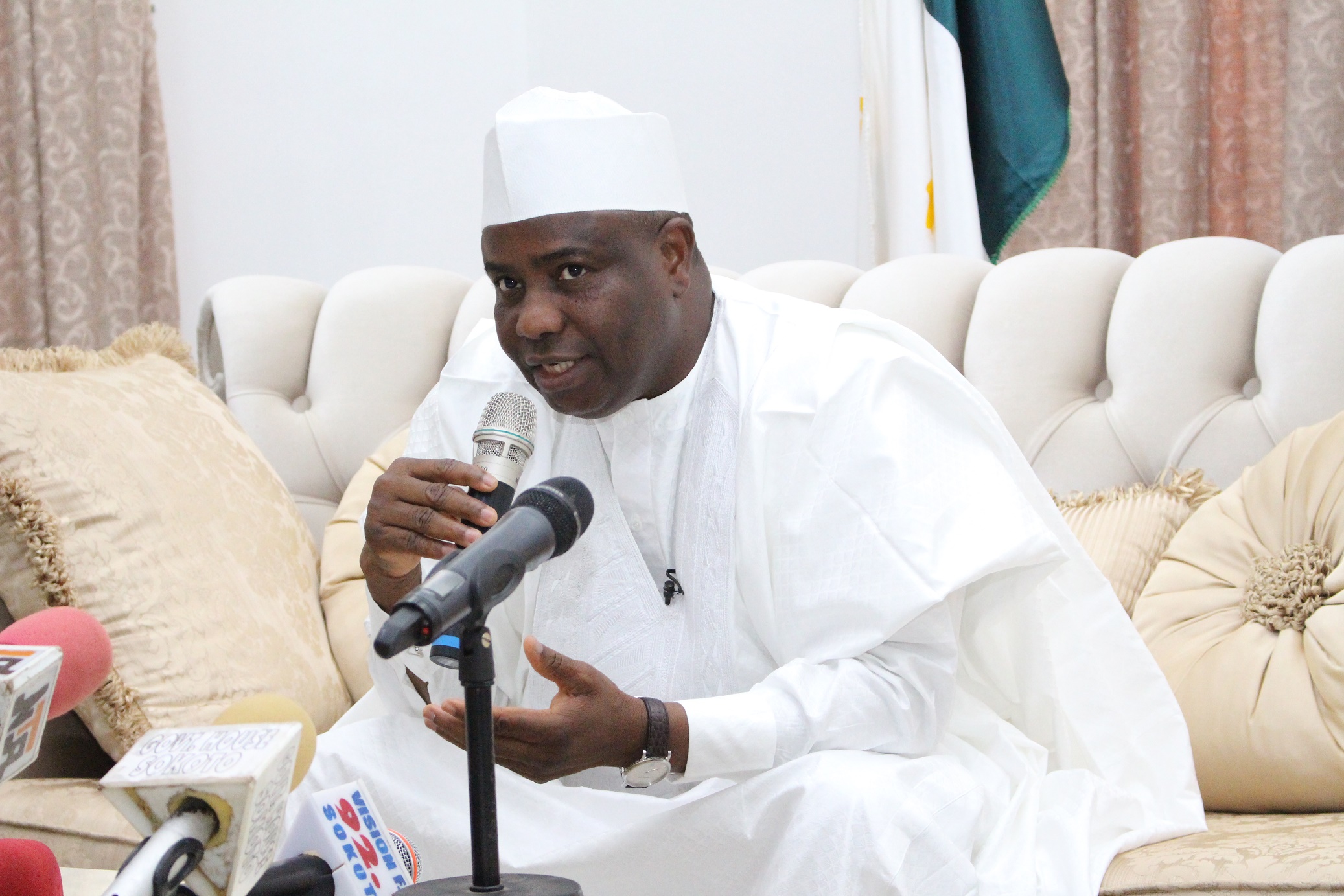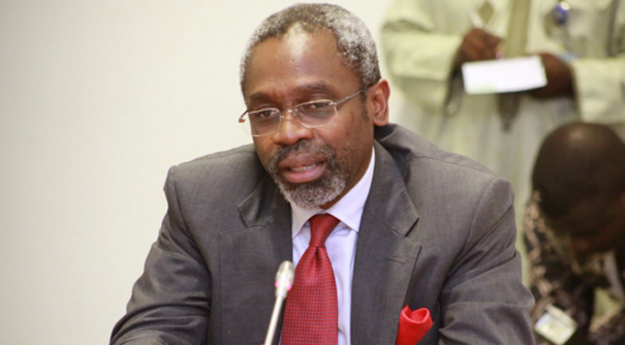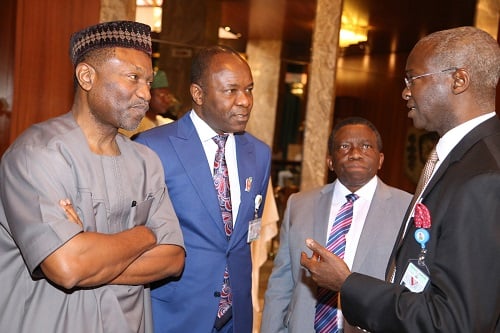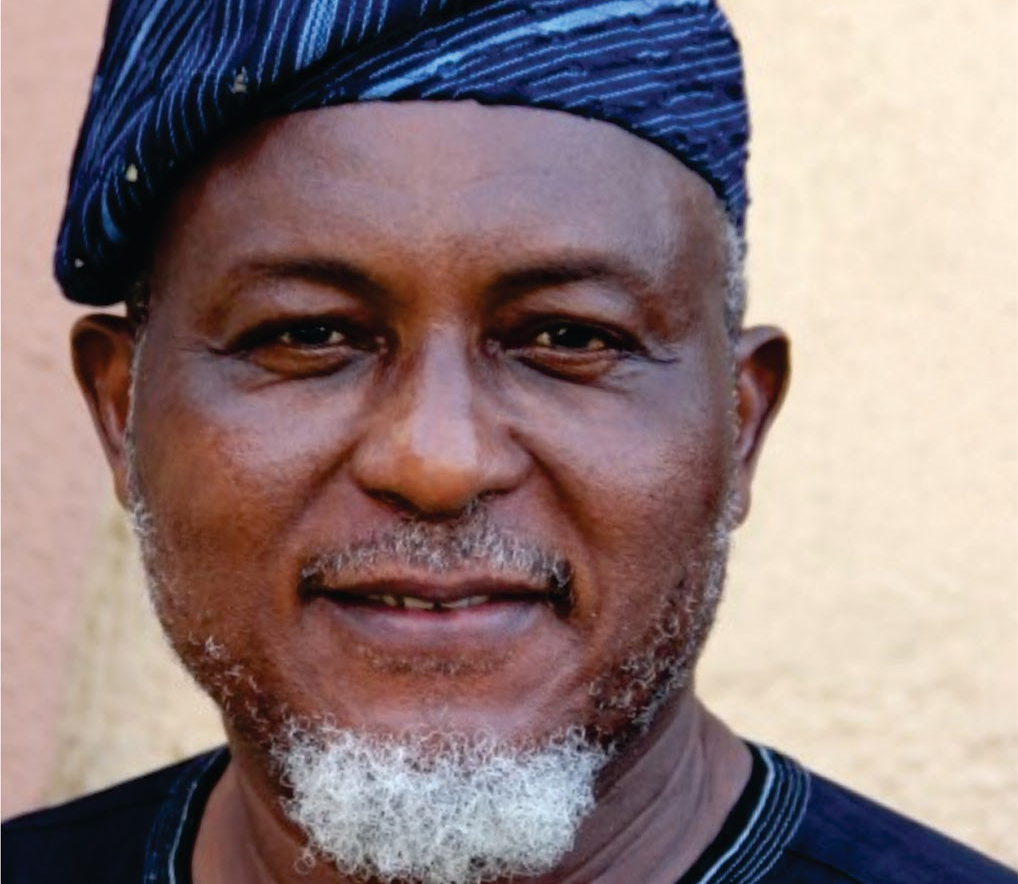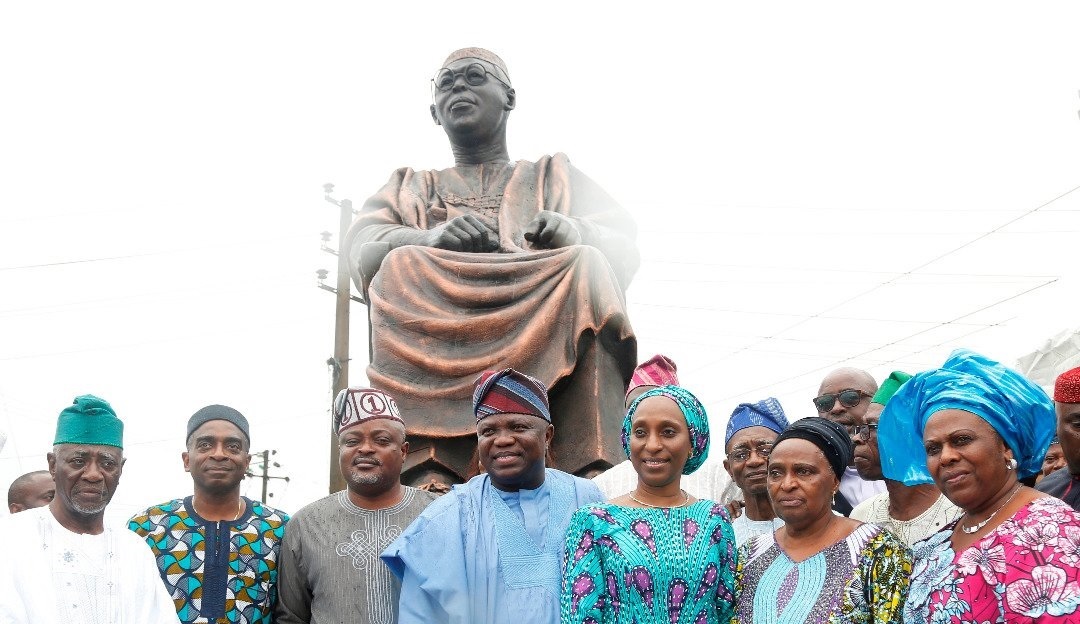Let me begin by sharing this story of a teacher who got lost in a rural area, and please don’t ask me in which country because I don’t know. While still wandering, the teacher saw a farm and went there, hoping he would find someone from whom he could seek direction. Fortunately, he found a farmer but as they were exchanging pleasantries, he noticed a cow with a wooden leg and he became curious. “How did that cow get a wooden leg?” the teacher asked the farmer.
“Well”, replied the farmer, “that is a very special cow. One night not too long ago we had a fire in the barn. That cow set up a great lowing that woke everyone, and by the time we got there it had herded out of the barn not onlythe other cows but indeed all the animalsin the farm and saved every one of them.”
“And that was when the cow hurt its leg?” asked the amazed teacher.
“Oh no” responded the farmer. “The cow was fine after that even though a few days later, I was in the woods when a bear attacked me. As it would happen, that cow was nearby and it came running to chase off the bear. That is one experience I will never forget because that cow saved my life for sure.”
Advertisement
“So the bear injured the leg of the cow?” asked the teacher.
“Oh no”, came the prompt reply from the farmer. “The cow came away from that encounter without a scratch. Unfortunately, a week after that incident, my son was working on the farm when the tractor turned over into aditch with a large pool of water and he was knocked unconscious. Well, that cow dove into the ditch and pulled my son out before hecould drown.”
Nodding his head, the teacher said: “Now I get it. That was how the cow hurt its leg while rescuing your son…”
Advertisement
“Oh, no,” the farmer interjected.
By this time the teacher had become very impatient: “So how exactly did the cow get the wooden leg?” he asked.
“Well”, looking in the direction of the cow, the farmer shook his head and muttered,”You should put yourself in my position. A cow like that, you don’t want to eat it all at once.”
Pastor Poju, distinguished ladies and gentlemen, if we will be honest, that unfortunate cow has so much in common with Nigeria, which has over the years become a victim of serial abuse, including by thoseto whom she has given so much. As I reflected on that story in the past few days, I came to the conclusion that just like that cow, Nigeria is no more than a meal ticket to many of her elites. What is even more unfortunate is that the people who speak ill of her the most, especially in a season like this, are those who have benefited immensely from the opportunities presented to them by this supposedly useless country.
Advertisement
Some of these people were, at various times,governors, ministers, lawmakers, special advisers etc. Many were also in the private sector where they made so much money under a system that demanded little or no accountability of them. Also in this categoryare some of our compatriotswho now live abroad, including with their immediate families, thanks tothe fortunes they or their parents made in this same country.
Let me make a confession here: Iowe a lot to Nigeria. That someone like me, given my background, could attend a university like Ife as at the time I did was because the state made education at that level to be tuition free. And whether they admit it or not, there are hundreds of thousands like me who are where they are today on account of Nigeria: the education they got, the wealth they have accumulated and the influence they still peddle. Unfortunately, it is from this same collection that you find those who continually trouble our country.
On 6th June this year,some old men under the aegis of Coalition ofArewa Youths gave all the Igbo people living in the North till yesterday, 1st Octoberto vacate the region. Even though the quit notice was eventually withdrawn,the damage that ultimatum did to our national psyche would take many years to heal. But then, the action of this group was also a response to the uncontrolled verbal aggression by MrNnamdiKanu, leader of the so-called Indigenous People of Biafra (IPOB).
Egged on by the mob, comprising mostly okada riders with online support from several of his kinsmen in the Diaspora, Kanu was allowed to take hate speech to an unprecedented level, even by the standards of our country. Even when he waspresented a golden opportunity to champion the genuine grievances of his people with civility, following an ill-advised treason trial that catapulted him into national limelight and prominence, Kanu could not rise beyond the mediocrity of the adulation of some street urchins. He felt that by making incendiary statements to offend, insult, intimidate and threaten people from other ethnicgroups, he was helping whatever his cause was. At the end, he made a strategic miscalculation.
Advertisement
However, while I do not know why Kanubelieves spreading hate and violence would help his cause, the Arewa youth counter-response was also very much unfortunate because the inference was that because Kanu is Igbo, all Igbo people must suffer the consequences of his action. But one must thank the governor of Borno State and Chair of the Northern Governors Forum, AlhajiKashimShettima as well as Governor NasirelRufaiof Kaduna State for their prompt interventions.
Unfortunately, the message that was lost on the authorities in Abuja is that you cannot build an inclusive society when you react to national security threats in a manner that suggests some people are above the law;although many people across the country also felt let down that some otherwise respected senior citizens from the South-east who ought to have called Kanu to order were practically genuflecting before someone young enough to be their grandson!
Advertisement
Meanwhile, what many of our young people, as well as the politicians in their sixties and seventies who do not want to grow up, forget or are ignorant about, is that north or south, we need one another. That then explains why all thecurrent agitations and perturbations are a distraction from the real issue which is that Nigeria is not working for majority of its citizens. And we see the evidence everywhere.
For sure, the state of affairsin our country today is enough to make people really angry. But if such anger is not properly channeled, it can be dangerous. For instance, I am angry about how clumsy and inefficient public institutions have become in Nigeria. I am angry about the way public officials, at all levels, betray a lack of creativity even in dealing with simple matters. I am angry when a teenager tells me that their school bribed invigilators to look away so that their teachers could tell them the answers while sitting for a crucial national examination. I am angry by the latest statistics from the United Nations Children Fund (UNICEF) that in our country about 90,000 children are expected to die of hunger over the next 12 months.
Advertisement
I am angry about the foregoing and much more because I believe we can do better as a nation. But I cannot because of such anger lash at the next person or another group of Nigerians who do not speak the same language or worship the same God with me.Therefore,my charge this morning to our young men and women is: If you must be angry as Nigerians, direct it not to the tribe, ethnicity, religion, race, gender or even the sexual orientation of fellow citizens. Direct it at the greed and the perversion that make some people deny others their decent and fair opportunities in life. Direct it at the ignorance andbigotry of a vast majority who submit themselves as ready tools for those who conspire to hold our nation down. And let us begin to figure out a way to defeat these people and problems
Distinguished ladies and gentlemen, the challenge of the moment is to create an environment with less suspicion and more equitable distribution of power and resources among the critical stakeholders in our country. This country is full of promise and presents enormous opportunities. Even while it is true that the system is creaking beneath all of us and we must fix it, those who couch the narratives in ethnic or religious arguments miss the point and they are actually the problem. This is not a North-South debate neither is about dismemberment for many of us. What we are saying is that the current situation where money is sent from Abuja to Badagry or Birnin-Kebbi is antithetical to good governance.
Advertisement
Nothing can be more revealing of how wasteful our federal structure has become than a recent revelation by the Minister of Health, Prof Isaac Adewole who said: “I was in Zamfara State. At the Federal Medical Centre in Zamfara, there are about 120 doctors but the state has 23 (doctors) as at the last count to manage 24 hospitals. And, yet, the federal hospital has about 120.”The pertinent question is: How did the federal government engage such a large number of medical personnel who are practically idle and for just one medical centre? The answer is simple: It is largely because of its heavy wallet. Yet, you find this sort of waste replicated in several sectors.
Therefore, we must find a way to make government more efficient and effective. How to make this happen is where the disagreement lies. But we are gradually coming to a consensus that it is the dysfunction at the centre that is creating the current bad blood, frustration, anger, suspicion and unhealthy competition among the various groups in the country.
Anybody who has read the report of the Presidential Committee on the Restructuring and Rationalisation of the Federal Government Paratastals, Commissions and Agencies cannot but understand the waste we call government in Nigeria.Chaired by former Head of Service, Mr Steve Oronsaye, the committee was established in August 2011 by the former President, DrGoodluck Jonathan with the report submitted to him in April 2012, although he ended up doing nothing with the recommendations.
It is instructive that the committee identified 541 federal government agencies, 50 of which have no enabling laws! There are also 55 agencies that are not under the supervision of any ministry and many of them, according to the Oronsaye committee,“receive more budgetary allocations for personnel than they require because that component of their budget is usually inflated”. These agencies include National Agency for Population Programmes and Development; Population Activities Fund; Population Fund Activities Agency and Population Research Fund.
Yes, those are federal agencies in Nigeria!
I need to state here that bad governance is not peculiar to the federal government because the situation is actually worse in the states and as for local governments, let us not even go there given what governors have done to that tier of government.
As things stand in Nigeria today, accountability diminishes as you move from the centre to the other units: states and local governments. For instance, no president in Nigeria can get away with half of what governors do, almost as of right, in their states where there are neither checks nor balances. The speakers of the state houses of assembly are more or less errand boys of the governors and they serve and are removed at their pleasure.The logical result is that the promise of good governance embedded in the theory of decentralization that many Nigerians now clamour for, will still be delivered in the breach if there is no change in the behavior of the political actors.
Distinguished ladies and gentlemen, I am well aware that we do not have a perfect country but regardless of how our collective resources have been badly managed over the years, there is great gain for us to be positive in the way we relate to the country we all call our own. The pertinent question at this point is: What exactly do we mean by Nigeria?
In our context, the answer may be quite complex but one thing is certain, it should not be about geography or tongues or faith. For me, Nigeria is not the violent man who would demonise and threaten fellow citizens just because they speak a language different from his. Nigeria is not the angry man in a video who would ask his fellow men to go and poison the waters in a section of the country oblivious to the Yoruba saying that when you throw a stone in the market place, you cannot determine who would be hit by it. Nigeria is not the Baba the boys who would issue a dangerous quit-order on innocent citizens in their area of domicile. Nigeria is not the public official who would steal the money meant for some of the most vulnerable of our citizens, knowing he has the back of those who should hold him to account. Nigeria is not the politician who spends his productive hours every day spewing hate and bigotry on social media platforms just because he has a personal score to settle with the president.
Distinguished ladies and gentlemen, if I am sounding like a motivational speaker this morning, I think you should blame my pastor, EvaristusAzodoh. A retired colonel of the Nigerian army and a medical practitioner, Azodoh is always leading us to pray for Nigeria and never to speak ill of her. It is strange because I know a little bit about his family background which suggests he has every reason to be bitter about Nigeria. But he is not. From 6.30am yesterday, Pastor Azodoh led us through a 90-minuite prayer session for Nigeria and President MuhammaduBuhari.
Building a nation, especially from our kind of diversity, according to Pastor Azodoh, is a process that may not necessarily produce quick results but with a leadership that deploys fairness in the distribution of opportunities and citizens who see the value of shared aspirations in an atmosphere devoid of acrimony, it is not beyond us. And in the course of the prayer session, Pastor Azodohstopped and asked that we all sing the national anthem. He likened Nigeria to a big family where there would be quarrels, squabbles, even injustice; but he also added that, whatever the challenges, we must always remember that families stay together.
To buttress his point, Pastor Azodoh told the story of what happened in 1981 when, as a medical student, he participated in the West African Universities Games hosted by Cote D’Ivoire in Yamoussoukro. In the course of the competition, according to Pastor Azodoh, a Nigerian student was molested and the contingents from our country said the competition would not continue unless the then President of Cote D’Ivoire, the late Félix Houphouët-Boigny, personally came down to apologise to them. “Ministers from the government of Cote D’Ivoire came to plead with us but we insisted only an apology from their president would do”, said Pastor Azodoh, “I felt very proud to be a Nigerian.”
Eventually, it took the intervention of the Nigerian ambassadorto Cote D’Ivoire for the contingents from our country to stop the demonstration that had held up the competition for two days. Now, what those students demonstrated was not only our power as a nation but also the power of our unity. They were fighting over an injustice done to a single Nigerian. We need such solidaritytoday. And despite our challenges, we are already seeing glimpses in that direction.
For me, Nigeria is that young man in Samson Itodo who is working day and night to create a pathway for change, by ensuring that a country where the demographics tilt heavily in favour of young people cannot continue with a policy founded on the erroneous notion that the Wisdom of Solomon had anything to do with age of Methuselah. Nigeria is that young lady in Lagos, TemieGiwa-Tubosun, who took it upon herself to ensure that those who need blood donation across the country are well served and on time with her LifeBankorganisation. Through her effort, the lives of hundreds of our citizens are being saved. Nigeria is my beautiful sister, IbidunniIghodalo who, despite her own disappointments, decides to put smiles on the faces of other aspiring mothersby deploying her personal resources to pay for their In Vitro Fertilization (IVF) treatment. Nigeria isKechiOkwuchi, who proudly draped herself in the green white green flag to mark the 57th independenceof our country in the United States where she is making many of us proud. This is a young lady who could be said to have been let down by Nigeria at a most difficult period in her life, even when lucky to be alive, unlike her friends and classmates caught in the same plane crash. But she is still proud of being a Nigerian.
Nigeria is Aisha Waziri Umar who is planting libraries in those parts of the north-east devastated by Boko Haram. It is her way of fighting back against the misguided zealots who see education as a sacrilege to be destroyed along with the future of millions of innocent children. Nigeria is Oronto Douglas who, diagnosed with Cancer in 2008, invested the last seven years of his life setting up and nurturing a school for orphaned children in his native Okoroba in Bayelsa State.
The examples are just too many of change agents who are taking up spaces to make a difference in our world. But the message is simple:Our drive and commitment to making Nigeria great should be anchored on the fact that we also have a role to play and numbers don’t matter. What matters is the resolve that we will be part of that positive change.
Let me illustrate that point as I try to conclude my intervention this morning with the Biblical account of the 12 spies as recorded in the Book of Numbers Chapter 13.
The people of Israel had been set free from their captivity and servitude in Egypt. They wandered through the wilderness during which a number of them died. On reaching Mt Sinai, they were given the laws to govern their affairs and the templates they needed for worship. With national census concluded, they inched towards the border of Canaan, ready to enter the land that had been promised their fathers.Suggestions however came from the leadership that a search party be sent to look at the inhabitants and how good the land really was. 12 gentlemen were selected, one from every tribe, and they were sent as spies.
For 40 days, they explored the length and breadth of the land and returned with sufficient proof. About the goodness of the land, there was no deviation in all the reports.However, while ten of the 12 spies concurred that the land was indeed good, they added a misleading bit: “We are not able to go up against the people, for they are stronger than us…it is a land that devours its inhabitants, and all the people whom we saw in it are men of great stature…We seemed like grasshoppers in our own eyes, and we looked the same to them.”
One can argue that the ten spies possessed critical spirit and there is nothing wrong with positive criticism. But they went further not only to dampen the morale of the people but also to incite them against the leadership. Having lost their self-worth, like many Nigerians have done today, the ten spies likened themselves to grasshoppers and added that they were seen as grasshoppers, even by the Canaanites. How could they have known that?
We have many of such people in Nigeria today. The negative men and women who tell you that nothing can change; that our country is doomed. Meanwhile, Caleb and Joshua saw possibilities and with that, they also gave hope to the people that victory was attainable. Unfortunately, their report could not convince the people and their voices were drowned. As a consequence, Israel wandered additional 38 years in the wilderness with an entire generation wiped out completely.
What the foregoing means is that we should not continue to listen to the naysayers in our midst who do not mean well for our country. Whatever may be the differences in opinions, there is more that unites us as Nigerians than there is to divide. While some of the current agitations are not bad in themselves since they reflect the broad diversities of our country and the different experiences that must be on the table to make us great, we must also recognize that it takes so little to set a house on fire. Any fool can do that. Meanwhile, it takes efforts, perseverance and sacrifice to build. That does not come easy.
Admittedly, ours is a fragile polity but the social and economic bonds that unite us are strong and hard to dissolve. Yet the task of conscious nation building has hardly been done. The rights of citizenship are still shackled by boundaries of state of origin and ethnicity. The excessive hangovers of prolonged military rule are still with us in the form of impulsive arbitrariness. Our government still finds it easy to call in military force to quell elementary civil unrest.We are yet to teach our citizens from infancy the values of group living and how to compete as individuals without resorting to primordial hate when we cannot prevail.
However, despite all these, the real challenge is that of creating enough wealth to cater for the need of our huge population. If we remain a poor country with an external reserve that is less than the cash holding of Facebook alone, our competitions might get more bloody and our future more speculative and tentative.Our task therefore is to make Nigeria a land of equal opportunity for all, a nation whose unity is not decreed as non-negotiable but is guaranteed by the practical incentives it offers for all to want to stay in and perfect the union.
As I stated earlier, the enemy is not the other who speaks a different language or worships a different God. The enemy, unfortunately, is that person with predatory behavior who has benefitted the most from our country, but who like the farmer in the story with which I started this intervention, only rewards Nigeria’s love with eating her up in bits, to the detriment of the majority of our people. This tiny group, which is present in every region and religion, has maintained its hold by setting the majority against themselves. We need to rescue our country from their destructive grip.
Therefore, recognising that we may not always agree on the details of how to perfect our union, it becomes problematic the moment any argument is framed in a way that makes the incumbent think it is an attempt to distract him from governance or to get power through the back-door. But history also shows that leaders who improve their society are not those who divide along the voting pattern in the elections that brought them to power but those who can bring diverse citizens together to work for the common good.
Pastor Poju, distinguished ladies and gentlemen, as I take my seat, on a day such as this, my charge to all Nigerians is simple:We should see ourselves as allies in a struggle for a better country that is bigger than any, and yet needs all of us working together.
Thank you very much for listening and good morning.
Excerpt of Adeniyi’s presentation at Platform, a Covenant Christian Center programme, on October 2, 2017
Views expressed by contributors are strictly personal and not of TheCable.
Add a comment
